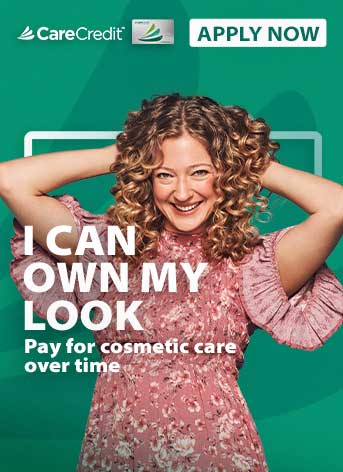Ever wonder how some people seem to have flawless skin? Good genes? Maybe. But it could also be their skin care routine, including Retin-A, a not-so-secret weapon to help keep skin looking smooth and healthy.
If you're interested in adding Retin-A to your skin care routine, read on to find out more about what it is, how it works, the different types of Retin-A and more.
What Is Retin-A?
Retin-A, also known by its generic name tretinoin, is a topical medication derived from vitamin A. It belongs to a class of drugs called retinoids, which are known for their ability to regulate cell turnover and stimulate collagen production in the skin. Retin-A is available in various formulations, including creams, gels and solutions, and is commonly prescribed for treating acne, sun damage and signs of aging.1
How Does Retin-A Work?
Created as a treatment for acne, Retin-A encourages the turnover of dead or damaged skin cells and stimulates the growth of new, healthy cells, giving your skin a brighter, more even texture.1 Using Retin-A over time also increases collagen production, which can help reduce fine lines and dark spots and soften rough patches of skin.2
It typically takes three to six months of regular use of Retin-A to see skin improvements, and six to 12 months to see optimal results.2
What Does Retin-A Treat?
Retin-A can be used at any age and can help treat the following skin conditions:3
- Acne: Retin-A can help reduce clogged pores, inflammation and frequency of breakouts.
- Fine lines and wrinkles: Increased collagen production helps improve skin texture and elasticity, reducing the appearance of wrinkles and expression lines.
- Poor skin texture: Retin-A helps increase exfoliation, which removes dead skin cells and stimulates new cell growth, resulting in smoother, brighter-looking skin.
- Sun damage and hyperpigmentation: Retin-A can reduce light freckling and discoloration caused by sun damage, leading to a more even skin tone.
Retin-A is not right for everyone. People with inflammatory skin conditions like rosacea, eczema or sensitive skin may not be good candidates for Retin-A. Cancer patients in active chemotherapy and patients using photosensitizing medications —including some antibiotics and blood pressure medications — should not use Retin-A. Pregnant women should avoid Retin-A.1
Consult your dermatologist to see if you are a good candidate for Retin-A, and always let your health care providers know if you use Retin-A regularly.
Types of Retin-A
Retin-A is formulated as a lotion, cream or gel and typically requires a prescription, though it may not be covered by insurance if it's prescribed for cosmetic use.1
Alternatively, you might consider an over-the-counter (OTC) product containing adapalene or other retinoids like retinol, which is a milder form of Retin-A.1 These OTC products are gentler and less irritating to the skin but may also be less effective in treating wrinkles.2
How Much Does Retin-A Cost?
Depending on the pharmacy you visit, Retin-A 0.1% topical cream costs approximately $30 for 20 grams.4 A Retin-A 0.01% topical gel costs around $25 for 15 grams.4 These are out-of-pocket costs not covered by health insurance.
How to Use Retin-A
When using Retin-A, follow your doctor’s exact instructions along with the directions on the label. Do not use more than the prescribed amount, and do not apply Retin-A to open wounds or skin that is sunburned, chapped or irritated.5
In addition:
- Start slowly: Begin by applying Retin-A every other night or every third night to allow your skin to acclimate to the medication.1
- Use a pea-sized amount: Apply a pea-sized amount of Retin-A to clean, dry skin, avoiding nose, lips and corners of the eyes.6
- Moisturize: Follow up with a gentle moisturizer to help minimize the dryness and irritation associated with Retin-A use.3
- Protect your skin: Your skin may be more sensitive to sunlight and more susceptible to sunburn while using Retin-A, making it especially important to apply daily sunscreen, preferably with an SPF of 30 or higher.1
You won’t see the positive effects of Retin-A overnight, so patience and consistency are key. Introduce Retin-A into your regular skin care routine, along with daily sunscreen, for optimal results.
Potential Side Effects of Using Retin-A
It can take several weeks or months of using Retin-A as prescribed before you see improvement in your skin.2 It's also common to experience skin irritation — including redness, dryness and peeling — during the initial stages of use.1 You might also experience mild tingling, stinging or color changes in the treated skin.5
Talk with your dermatologist about any ongoing symptoms you may have so they can adjust the strength of your prescription if necessary.
If you experience an allergic reaction that includes hives, difficulty breathing or a swelling of your face, lips, tongue or throat, get emergency help immediately.5
Stop using Retin-A and contact your doctor if you experience severe burning, swelling, redness, blistering, peeling, pain or discomfort.5
CareCredit Credit Card Financing for Dermatology
The CareCredit credit card makes it easy to pay for dermatology visits, over-the-counter treatments and prescription medications at locations within the CareCredit network.* Start enhancing your skin today and find a dermatologist near you that accepts CareCredit. Continue your wellness journey by downloading the CareCredit Mobile App to manage your account, find a provider on the go and easily access the Well U blog for more great articles, podcasts and videos.
In addition to dermatology, you can also use your CareCredit credit card for other cosmetic procedures, dentistry, pet care, vision, hearing, health systems, pharmacy purchases, spa treatments and so much more within the CareCredit network. How will you invest in your health and wellness next?
Author Bio
Anne-Marie Kennedy is a freelance writer with more than 20 years of experience covering health and wellness, personal finance and real estate/investing.








